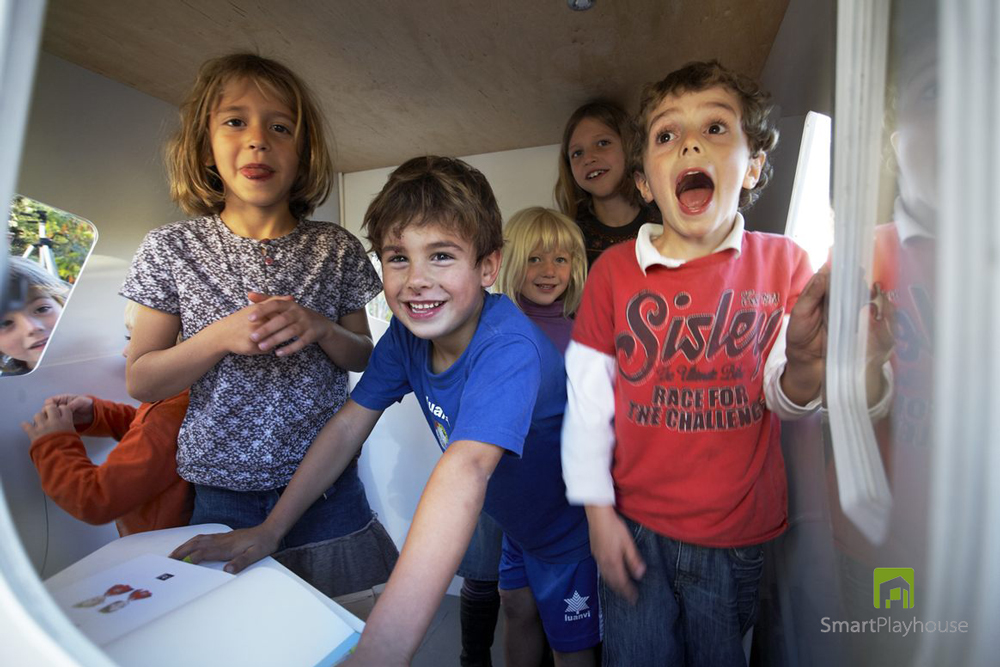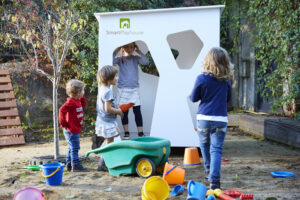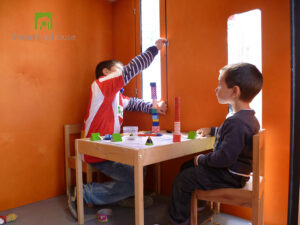
Kids` playtime: why it is so important?
Kids` playtime is not just a way of keeping children entertained and passing the time. It is necessary for their growth because it promotes the cognitive, social, physical and emotional well-being. The American Academy of Pediatrics believes that playtime is the best way for a kid to learn and develop.
How kids` playtime shapes them to be more creative and healthier
Developing vocabulary and language during kids` playtime
By spending time playing, kids, especially pre-schoolers, can truly enhance their ability to communicate and their comprehension of the words they speak. Children like to learn new words, which is greatly helped by having them around each other during kids` playtime.
Kids` playtime helps them be more sociable
 When playing with other kids, they can increase social skills. Being around other kids, even if they don’t interact, can be enough. Kids` playtime is important from an early age because it makes children sensitive to the emotions of others. in this way they develop the ability to negotiate, cooperate and adjust to others. During playtime, kids learn important lessons that will help them cope with all kinds of social situations when they grow up.
When playing with other kids, they can increase social skills. Being around other kids, even if they don’t interact, can be enough. Kids` playtime is important from an early age because it makes children sensitive to the emotions of others. in this way they develop the ability to negotiate, cooperate and adjust to others. During playtime, kids learn important lessons that will help them cope with all kinds of social situations when they grow up.
Increases brain power
Kids` playtime can contribute to their brain development in part by providing important life experiences that lay the foundation for brain growth. Time playing with toys as an infant leads to an increase in a child’s IQ by age 3. Just playing with different toys, thereby the child develops the brainpower.
Kids` playtime benefits mental health
Happier kid = heathier kid
Happier kid = heathier kid
Every parent cares about their child and wants them to be happy. Any kind of kids` playtime makes them happier. Every child will feel real joy as they engage in their favorite kind of play, testing out new toys, or inviting friends in the backyard. Happiness should never be underestimated.
Helps children manage stress
Helps children manage stress
Kids` playtime helps protect them from the negative effects of stress. As children grow up, they have a lot to deal with. These include peer pressure, romantic dramas, friendship problems, and stress over marks. Playtime will be an aid in finding a balance between stress and a peaceful life and will help them deal with the daily stresses they will face.
Kids` playtime develops their individual interests and hobbies
 Part of the fun of the pleasure of kids` playtime is being able to do things that interest them. Which games children choose depends only on themselves — whether they are singing into a comb, imagining themselves as a rock star, or portraying an astronaut preparing to fly into space. Playtime gives them the opportunity to find their interests, which may become their lifelong pursuits.
Part of the fun of the pleasure of kids` playtime is being able to do things that interest them. Which games children choose depends only on themselves — whether they are singing into a comb, imagining themselves as a rock star, or portraying an astronaut preparing to fly into space. Playtime gives them the opportunity to find their interests, which may become their lifelong pursuits.
Developing imagination and activity
Imaginative play is an essential part of kid’s world. They make up imaginary games or get lost in imaginary worlds. Through kids` playtime, they can develop creative skills and think outside the box and come up with innovative solutions. Kids develop their creativity skills, whether they are making mud pies or playing doctor, or preparing a yummy pot using a stick as a spoon.
Kids` playtime strengthens the bond between a child and a parent
Playtime is a great way to strengthen the connection between parents and children. Just a quick tower of blocks (building as a real castle) or a pretend tea party can do the trick. It is both important for kids and their parents because the shared joyful feelings during play can only make their relationship stronger.
Manage self-regulation
Manage self-regulation
It is critical for children to learn how to self-regulate their emotions and subsequent actions.
Self-regulation will help each child cope with the challenges of schooling, where you have to sit still, answer when asked, and complete assignments. Also, self-regulation will also help children cope with boredom and find ways to entertain themselves.
Boosting self-confidence
Boosting self-confidence
By solving challenges and achieving success, your child will feel more confident. Any kids’ playtime like learning to do somersaults or holding your breath in the pool builds self-confidence. But children can also build confidence by developing imagination or learning conflict resolution skills. They will know that whatever the challenge, they have the ability to handle it head-on.
Kids` playtime inspires empathy
It’s a great way for kids to learn empathy because playtime allows them to practice placing themselves in another person’s shoes. Whether it’s a tea party or a game of mother-daughter, they learn to imagine what they would do or feel in any given situation.
Helps kids express their emotions
Helps kids express their emotions
Children show their emotions in stories, pictures, and paintings before they begin to express them in words. When kids are going through a difficult event, they express their feelings in their actions while playing. It’s a great way to express themselves, it can be helpful in letting emotions out whether children are happy, sad or afraid. Kids` playtime can help children of all ages deal with their feelings.
Promotes physical well-being
Promotes physical well-being
Physical play helps children develop strength, endurance, muscle control, reflexes, coordination, and other important motor skills. Getting more physical activity will help your child sleep better at night too.
Don’t forget to make time in your schedule to simply let your kids play!

Leave a Reply